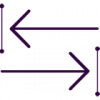 |
Endgame Testing: Exploring Your Agile Product End to End The main goal of endgame testing is to test the system end to end from the user's perspective. This should ensure continuity between components developed by different teams, continuity in user experience, and successful integration of new features. Endgame testing will often identify gaps that are difficult to discover inside agile teams, including flows across the product.
|
|
 |
Slim Down Your Test Plan Documentation Test plans are essential for communicating intent and requirements for testing efforts, but excessive documentation creates confusion—or just goes unread. Try the 5W2H method. The name comes from the seven questions you ask: why, what, where, when, who, how, and how much. That's all you need to provide valuable feedback and develop a sufficient plan of action.
|
|
 |
Has Continuous Deployment Become a New Worst Practice? Software development has been moving toward progressively smaller and faster development cycles, and continuous integration and continuous deployment are compressing delivery times even further. But is this actually good for businesses or their users? Just because you can deploy to production quickly and frequently, should you?
|
|
 |
Shifting Left and Going beyond Agile: An Interview with Michael Nauman In this interview, Michael Nauman, a testing lead for AutoCAD Web, explains how we can go beyond basic agile principles. He digs into the current state of shift-left testing, the importance of aligning your DevOps with your automation, and using agile as a starting point on your quality journey.
|
|
 |
Paying Off the Technical Debt in Your Agile Projects Just as you should not take out a financial loan without having a plan to pay it back, you should also have a plan when incurring technical debt. The most important thing is to have transparency—adequate tracking and visibility of the debt. Armed with the knowledge of these pending tasks, the team can devise a strategy for when and how to “pay off” technical debt.
|
|
 |
The Tester's Role on Small and Large Agile Teams: An Interview with Mary Thorn In this interview, Mary Thorn, the director of agile practices at Ipreo, explains why there shouldn’t be any real differences between large and small agile teams. She details the qualities of an interchangeable tester and breaks down manual versus automated testing.
|
|
 |
How to Adapt to the New Age of Testing and Development: An Interview with Melissa Benua
Podcast
In this interview, Melissa Benua, a senior technical lead at mParticle and senior backend software engineer at PlayFab, explains how the speed of development and testing has changed, as well as how to adapt to the new era of software.
|
|
 |
Finding Efficiencies in Your Development Lifecycle
Slideshow
Many of us feel like we never have enough time to complete everything we want in a given sprint, cycle, or phase. Even though we can't add more hours to our day, we can add time by removing inefficiencies in our development lifecycle management approach. Melissa Tondi explores a number of...
|
Melissa Tondi
|
 |
Stamp Out Agile and DevOps Bottlenecks
Slideshow
The most critical step in the agile transformation and DevOps adoption process is identifying the bottlenecks in the product delivery cycle. So, how do you go about finding and eliminating those dreaded bottlenecks? Tanya Kravtsov shares her experiences along with tools and methods that...
|
Tanya Kravtsov
|
 |
Impact Maps: Let Your Goals Drive Your Product Features
Slideshow
Wouldn’t it be great if there were a way to combine quantified business goals, direct traceability from goals to features, surfacing of value assumptions, cause-and-effect analysis, design thinking, and visual facilitation in a single approach? Mathias Eifert says there is! Impact maps...
|
Mathias Eifert
|

